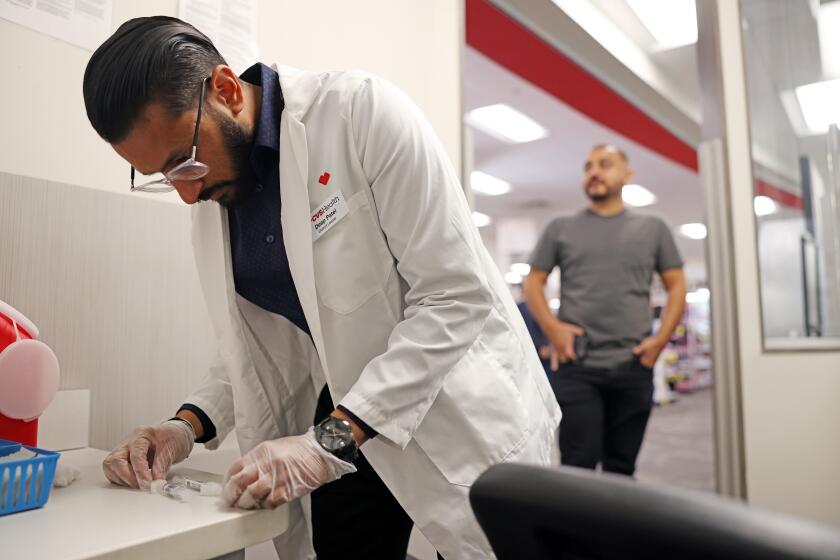A wake-up call following knee replacement
As I begin this column, it is Wednesday afternoon, Aug. 22. I have been alive 20,873 days, if my math is correct, and I hope to add to the tally.
But the knees I was born with will not be joining me for the rest of the trip.
The clock ticks. The surgeon scrubs.
An editor tells me this is a good thing. After a string of columns on end-of-life issues, I’ll have another way to write about the senior experience, he says.
I’m not a senior citizen, I tell him.
If you’ve got an AARP card, he says, (I thought it would be good for discounts), and artificial knees, you are officially a senior citizen.
I’m not sure why my knees gave out at what I consider to be the all-too-early age of not-quite 59. It might have been the asphalt-pounding athletics of my youth, the Catholic school genuflecting, or perhaps genetics.
Whatever the cause, I’m stiff, I limp, I hurt, and I have tried one remedy after another for nearly two years.
Switching my workout routine. Cortisone. Viscosupplementation injections. Acupuncture.
Each of those seemed to help for a while, and then didn’t. Now, when I struggle up from a chair and hobble along, my wife says my legs are bowed, and I walk like a gorilla.
For Christmas, I’m getting her an AARP membership.
I am now just hours away from the moment when Dr. Daniel Oakes, an orthopedic surgeon at Keck Medical Center of USC, takes a blade and opens my left knee with a 4- or 5-inch incision. I will join more than 4 million U.S. residents with fake kneelers. I will be one of more than half a million who have the procedure done this year, a number that has ballooned in recent years. One reason for the increase is that baby boomers are aging. Another is joint damage caused by obesity and also by workout mania.
Dr. Oakes told me about a recent forecast that, by the year 2030, there will not be enough joint replacement surgeons to meet the demand. In 25 years, the number of people whose activity is limited by arthritis is expected to grow by 40%, to 67 million adults.
And we think we’ve got budget and healthcare policy issues now?
Imagine 67 million people on bowed legs — planet of the apes — squinting at mobile devices, trying to find the app that controls the volume on their hearing aids.
In a way, I’m lucky, even though as soon as I recover from left knee surgery, I’ll be headed back to the hospital to have the right knee done. As Oakes explained, the knee is made up of three compartments, and on both knees, my lateral (outside) compartments look like they might be salvageable. For sure, I’ll be getting metal and plastic on the inside (medial) compartments, and Oakes suspects the center of both knees may also need to be reconstructed. But he’ll determine that during surgery.
I was told to bring my advance healthcare directive to the hospital with me. It’s Wednesday night now, and how am I supposed to fall asleep with that in my head?
::
I’m back.
Yes, I survived. It’s Friday morning, and my leg remains attached.
But there’s both good news and bad.
The good?
The operation went well. Dr. Oakes tells me there were no hitches. As suspected, the outside of the knee was fine, so he left it intact. He replaced the middle and inside parts of the knee and the prognosis is good, except that now I’ll be setting off alarms when I go through airport security.
And the bad news?
It’s fairly alarming, actually.
In post-op, my heart stopped.
I remember feeling very drowsy and faint, and then I was out.
My next memory is waking up to see a horseshoe lineup of doctors and nurses staring down at me with looks of concern.
Someone in the crowd told me my heart had stopped for as much as 30 seconds, and that I was resuscitated with chest compressions.
Good lord, maybe I’ve earned that AARP card.
And by all means, folks, get yourself an advance healthcare directive if you don’t already have one. Whether you die expectedly or unexpectedly, or end up critically ill, you need to make your wishes known about your legal affairs and medical choices.
I’ve spent the last 24 hours in the intensive care unit, and they tell me I might not be alive today if it hadn’t been for a nurse named Andrew Fabella, a 40-year-old father of two who’s been a nurse since 1999. After someone noticed my pulse rate falling, he quickly started heart compressions. Under the circumstances, I’ve decided to forgive him for the soreness I’m feeling around my ribs today.
The next step is they’ll analyze a bunch of tests in an effort to figure out what happened. I’ve had a slight arrhythmia for several years, my dad died of congestive heart failure, and my mother has a pacemaker. And although I came to the hospital for a new knee, it looks like I may go home with a pacemaker as well.
Whatever the problem, thanks to Dr. Oakes, I’ll be able to fight it now on at least one good, rebuilt knee.




